the bend and snap
tactical femininity, playful power, and the art of taking nothing seriously (except when we should)
There is a moment in Legally Blonde—yes, Legally Blonde—that encapsulates something about modern womanhood, performance, power, and play in a way no gender studies syllabus ever quite managed. It’s when Paulette, played by Jennifer Coolidge in all her soft, slightly-off glory, is taught the "bend and snap."
The move is absurd. Cartoonishly exaggerated. Theatrically useless. And yet... undeniably iconic.
Elle Woods (Reese Witherspoon), all pink confidence and breezy brilliance, delivers it like gospel: a low bend, a quick snap up, a tilt of the head, and boom—you’ve just weaponized flirtation into an attention grenade. It’s feminine power reduced to its most playful, most satirical form. And somehow, it works.
Don’t get me wrong—I’m not bringing this scene up because it’s endured through the ages. I’m bringing it up because rewatching it now—in a world of algorithmic identities and hyper-online feminism—it feels weirdly relevant again. Like a relic from a freer era, one where performance was acknowledged, not pathologized. One where femininity was allowed to be both sincere and frankly a little camp.
Jennifer Coolidge’s Paulette isn’t the intellectual, or the icon, or the activist. She’s not giving TED Talks or launching Goop-esque brands. She’s a lovable mess. Aloof, anxious, and awkward. But she’s also real. Real in the way that half of womanhood feels—not always empowered, but trying anyway.
And when she learns the bend and snap, it's not about seduction so much as it is about hope. Hope that you can control a world that constantly misunderstands you, by leaning into the tools it has handed you.
It’s also about access. It’s about trying to bridge the gap between desire and action using the only script she thinks she’s allowed to use. It’s less about attracting the UPS guy and more about avoiding the terror of just... saying something.
It’s ironic. It’s silly. It’s theatrical. But it’s also a bit genius.
Legally Blonde is often dismissed as a chick flick. Popcorn cinema. Cotton candy. But beneath the hot pink and the small dogs is a subversive cultural text about what it means to be both feminine and formidable.
Elle Woods never once sheds her femininity to be taken seriously. She doesn’t masculinize herself to gain respect. She doesn’t renounce softness or playfulness or aesthetic pleasure. She simply brings it all with her—into Harvard Law, into the courtroom, into the culture. And it works.
That feels almost radical now.
Because somewhere along the way, femininity got rewritten as frivolous. Women were told to lean in, boss up, strip down, tone it down, toughen up. Or worse—feminine traits were co-opted by men in lipstick, as if being a woman is something that can be mimicked through contour and cheap skirts.
We’re living in a time where actual women are being told to suppress their instincts while men are applauded for imitating them. That’s not progress—it’s parody.
And in a world now obsessed with taking sides, defining labels, and policing tone, the bend and snap exists in a purer space—one of unserious strategy. It doesn’t scream feminism. It doesn’t scream irony. It just... is.
And maybe that’s why it does actually endure. Because it reminds us of a time when empowerment didn’t require a thinkpiece, a discourse thread, or a twelve-step identity audit. It was light, and a little stupid, and incredibly effective. It reminds us that sometimes we can be unserious and still carry meaning.
That maybe there’s something sacred in not taking yourself so seriously while still doing something powerful. That femininity, like comedy, works best when it surprises you a little.
There’s something weirdly profound in watching someone rehearse empowerment. Especially when it’s covered in glitter and giggles.
Paulette learning the bend and snap in a nail salon isn’t an accident. It’s symbolic. Nail salons have always been one of the few culturally sanctioned spaces where women get to talk, scheme, share secrets, be vain, be vulnerable, be seen. They’re not workplaces or activist spaces or carefully curated “safe spaces”—they’re real, raw, imperfect slices of femininity.
That’s where the magic happens. That’s where performance meets reality.
Paulette didn’t need Elle to teach her how to exist—but she needed permission. A script. A gesture. A moment of eye contact with her reflection where she saw herself differently. That’s what the bend and snap is. A tiny, ridiculous permission slip.
It’s a funny scene. But it’s also sad. Because how many women today are still waiting for that permission?
This isn’t about the bend or the snap. It’s about the negotiation happening underneath it—the part where a woman says, "I don’t know how to do this," and another one says, "You already are."
It’s not subtle. They are screaming for attention. But the difference is, it’s their scream. Their timing. Their script. There’s agency in deciding how to be seen, even when the method is ridiculous.
What gets lost now is that agency. In a cultural moment that’s constantly overwriting womanhood—mechanizing it, monetizing it, replicating it in drag—we lose the real, clumsy, beautiful ways women used to test their own power.
I’ve spent years watching culture flatten, politicize, or outright erase femininity. I’ve watched the softness get swapped out for slogans. I’ve watched biological reality be replaced by hashtags and hormone regimens. I’ve watched women get quieter while men in dresses get louder.
And I’ve started to miss characters like Paulette. Not because she was perfect, but because she was trying. She was awkward. She wanted connection. She wanted love. She didn’t know how to ask for it without bending herself into something performative—but that doesn’t make her fake. It makes her honest.
So maybe this scene wasn’t meant to be profound. But it is. Because it reminds me what real femininity used to look like before it became a political football or a gender costume.
We’ve over-intellectualized everything. We forgot how to be playful. We forgot that some of the most enduring truths live in pop culture punchlines, in unserious women doing unserious things, who—by accident or instinct—reveal how power actually works.
Elle and Paulette weren’t trying to prove anything. They were just trying. That alone makes the scene more honest than most of what gets elevated as empowerment today.
The bend and snap isn’t a feminist doctrine. It’s not meant to be. But it shows what happens when women are allowed to be in on the joke—and the authors of it.
Sometimes the smartest thing you can do is lean into the bit.
Sometimes confidence starts with a joke.
Sometimes it’s bent over.
Sometimes it snaps.
And sometimes the most powerful thing a woman can do is refuse to abandon what was already hers.
*bends and snaps* xoxo


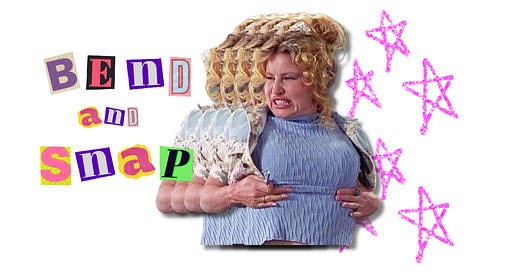


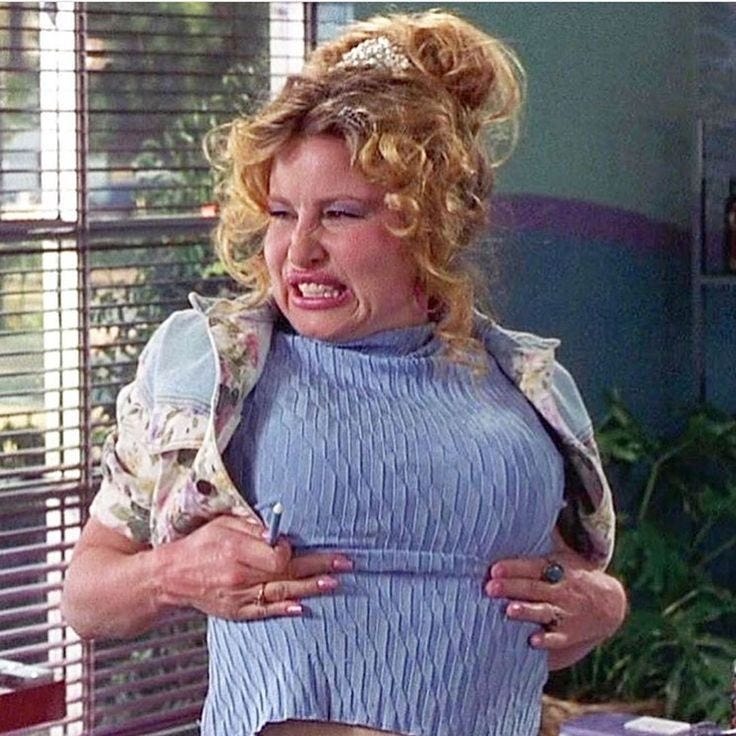
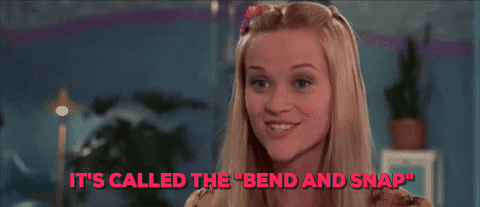



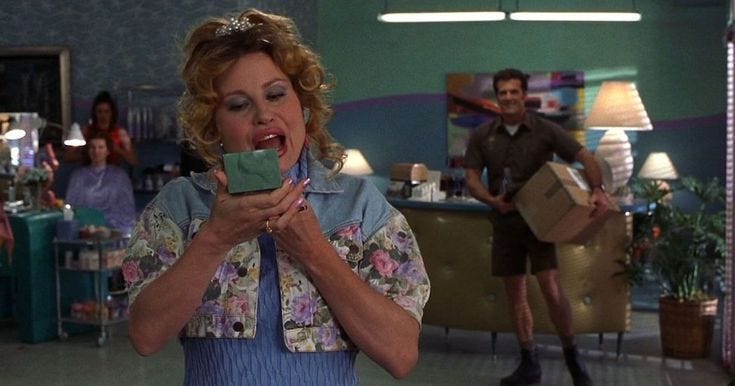
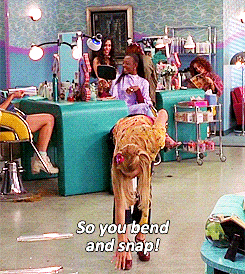





Was thinking about whether this applies to twerking. There are similarities, but fir some reason, tweaking feels like more malicious somehow. Less playful. Less meta. Women dont actually bend and snap, but some do twerk
Have you seen Dumplin' with Jennifer Anniston?